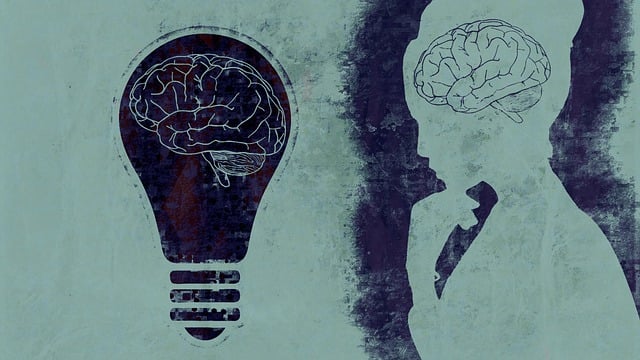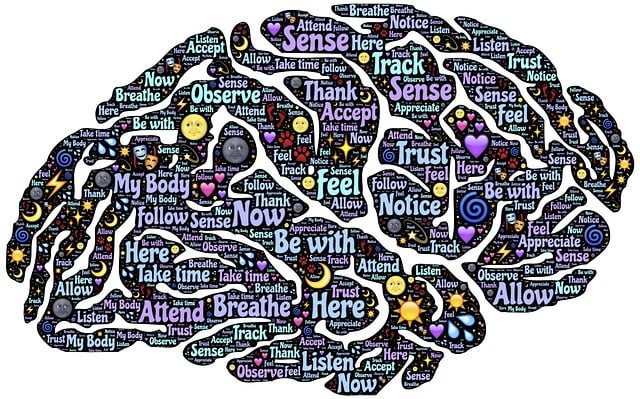Crisis Intervention Teams (CITs) offer vital support to elderly individuals experiencing mental health crises, including depression, anxiety, and suicidal thoughts. Trained in specialized techniques like hypnosis, CIT members provide tailored therapy addressing seniors' unique needs. Beyond crisis management, these teams enhance emotional intelligence among community members and caregivers, fostering better recognition and response to senior citizens' emotional needs. Regular training sessions featuring Mental Wellness Journaling Exercises and guidance on hypnosis empower caregivers while encouraging self-care practices that boost elders' confidence and promote positive mental outlooks, with a focus on therapy for elders using hypnosis.
Crisis intervention team (CIT) training programs are essential in equipping professionals to support elderly individuals during crises. This article delves into the critical role of CITs, exploring their impact on elderly care alongside innovative techniques like hypnosis—a therapy that unlocks calm and clarity. We examine comprehensive training programs, highlighting their benefits for elders’ well-being and resilience, while also addressing implementation challenges, ensuring quality care through effective training. Key keywords: Crisis intervention, therapy for elders, hypnosis.
- Understanding Crisis Intervention Teams: A Vital Resource for Elderly Support
- The Role of Hypnosis in Elder Care: Unlocking Calm and Clarity
- Training Programs: Equipping Professionals with Effective Strategies
- Benefits for Elders: Enhancing Well-being and Resilience
- Implementation and Challenges: Ensuring Quality Care Through Training
Understanding Crisis Intervention Teams: A Vital Resource for Elderly Support

Crisis Intervention Teams (CITs) play a vital role in supporting the elderly population by providing immediate assistance during crises. These teams are specifically trained to handle situations where seniors might be facing mental health challenges, such as depression, anxiety, or even suicidal ideation. By integrating specialized skills like hypnosis, CIT members can offer effective therapy for elders, helping them navigate through difficult emotions and promoting their overall well-being.
The importance of CITs extends beyond crisis management; they also foster emotional intelligence in both team members and the community at large. Through regular training sessions that include Mental Wellness Journaling Exercise Guidance, these teams enhance the abilities of caregivers to recognize and respond appropriately to elderly individuals’ needs. Furthermore, by encouraging self-care practices like journaling, they indirectly boost confidence in seniors, enabling them to maintain a positive mental outlook even during challenging times.
The Role of Hypnosis in Elder Care: Unlocking Calm and Clarity

Hypnosis is emerging as a valuable tool within elder care settings, offering unique benefits for both residents and caregivers alike. This therapeutic approach can help alleviate stress, anxiety, and agitation—common challenges faced by older adults in institutional environments. Through guided relaxation and suggestive language, hypnosis facilitates access to the subconscious mind, unlocking deep-seated tension and promoting calmness. By fostering a state of mental clarity, it enhances cognitive function and memory recall, which are often impacted by age-related cognitive decline.
Incorporating hypnosis into crisis intervention team (CIT) training programs for mental health professionals ensures that they possess the skills to incorporate this evidence-based practice in their care strategies. Mindfulness meditation techniques and an understanding of mental wellness can complement hypnotic interventions, enabling CIT members to conduct comprehensive risk assessments (for mental health professionals). By combining these tools, caregivers can create soothing atmospheres, improve communication with elderly individuals, and ultimately provide holistic support tailored to each resident’s unique needs.
Training Programs: Equipping Professionals with Effective Strategies

Effective crisis intervention team training programs are instrumental in equipping professionals with powerful strategies to address critical situations. These programs often incorporate a range of evidence-based techniques, including hypnosis for elders, which has proven beneficial in managing trauma and enhancing emotional resilience. By delving into such innovative methods, participants gain valuable skills to support individuals facing mental health crises, particularly the elderly population who may struggle with unique challenges.
The curriculum typically focuses on self-esteem improvement and inner strength development, empowering team members to foster a supportive environment. Additionally, these programs aim to reduce the stigma associated with mental illness through comprehensive training modules. By combining practical tools like hypnosis with empathy-driven approaches, crisis intervention teams become better equipped to navigate complex situations, ultimately improving outcomes for those in need.
Benefits for Elders: Enhancing Well-being and Resilience

Crisis intervention team training programs offer significant benefits for elders, contributing to enhanced well-being and resilience in this critical age group. By equipping caregivers and family members with effective strategies, these programs empower them to support seniors during stressful or traumatic situations. Hypnosis, a powerful tool within these trainings, allows individuals to tap into the mind over matter principles that can be instrumental in managing crises. Through guided relaxation and suggestive language, elders can experience profound calm, reducing anxiety and facilitating better decision-making.
Additionally, crisis intervention training often incorporates mental wellness journaling exercises, providing guidance on how to document and track an elder’s emotional state. This practice fosters resilience building by encouraging individuals to reflect on challenging experiences, identify coping mechanisms, and develop personal strategies for navigating future crises. By integrating these evidence-based techniques, such programs holistically support the mental health of elders, ensuring they have the tools to maintain their independence and dignity during trying times.
Implementation and Challenges: Ensuring Quality Care Through Training

Implementing crisis intervention team (CIT) training programs requires careful consideration to ensure quality care for those in need. One significant challenge lies in balancing comprehensive mental health education with practical, hands-on skills. Training must equip teams with effective strategies to support individuals experiencing crises, including the elderly who may require specialized therapy, such as hypnosis, to address unique emotional healing processes.
A well-designed CIT program should offer a mix of theoretical knowledge and interactive sessions to enhance learning retention. This includes training in confidence-boosting techniques, which are essential for both the team members and the individuals they support. Overcoming challenges requires ongoing evaluation and adaptation, ensuring that programs remain current and effective in meeting the evolving needs of communities.
Crisis intervention team training programs are a game-changer in elderly care, offering evidence-based strategies that enhance well-being and resilience. By equipping professionals with tools like hypnosis, these programs ensure quality care, fostering calm and clarity for elders facing crises. In today’s digital era, such training is more crucial than ever, enabling caregivers to navigate complex situations effectively and create a more supportive environment for elderly individuals.












